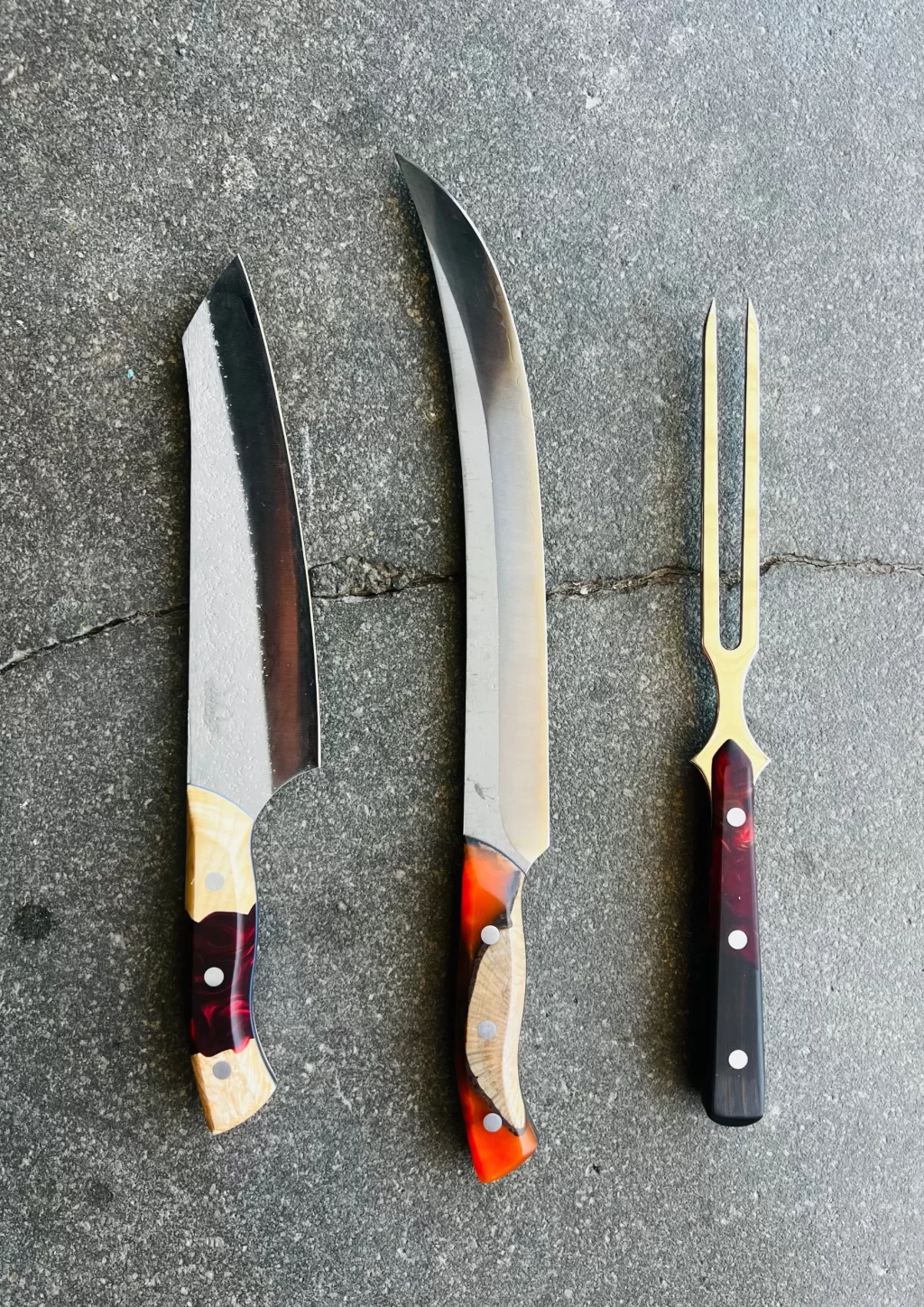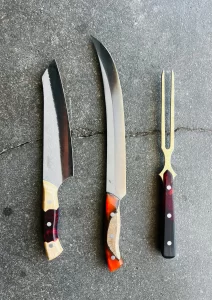Things To Consider Before Buying A Barbecue Knife Set!

Barbecue (BBQ) enthusiasts know that having the right tools can make a significant difference in the cooking experience and the quality of the food. One of the most critical tools in any grill master’s arsenal is a reliable knife set for BBQ in Australia. This essential piece of equipment not only helps in prepping ingredients but also plays a pivotal role in carving and serving smoked or grilled meats. Here are some key factors to consider before purchasing a BBQ knife.
- Type of Knife
The first consideration is the type of knife you need. BBQ knives come in various forms, including chef’s knives, boning knives, and slicing knives. Each type serves different purposes:
- Chef’s Knife: Versatile and suitable for chopping vegetables, herbs, and smaller cuts of meat.
- Boning Knife: Ideal for removing bones from meat with its thin, flexible blade.
- Slicing Knife: Perfect for making clean cuts through larger and softer meats, like brisket, without tearing the fibres.
Understanding the specific tasks you’ll need your knife for can guide you in selecting the most appropriate type.
- Blade Material
The material of the blade significantly affects the knife’s performance and longevity. Common materials include:
- Stainless Steel: Resistant to rust and corrosion, easy to maintain, and generally less expensive. However, it might require frequent sharpening.
- High-Carbon Steel: Known for its durability and edge retention. These blades are sharper and typically more expensive, but they can rust if not cared for properly.
- Ceramic: Offers excellent sharpness and maintains it for longer without the need for frequent sharpening. However, ceramic knives can be brittle and prone to chipping.
Choosing the right blade material depends on your preference for maintenance versus performance.
- Handle Comfort and Material
The handle is another crucial aspect, as it influences the knife’s balance and comfort during use. Handles can be made from various materials, including wood, plastic, and composite materials. Each has its advantages:
- Wood: Classic and attractive but requires more maintenance to prevent water damage or warping.
- Plastic: Hygienic, often dishwasher-safe, and less sensitive to the environment.
- Composite: A blend of materials that often provides the aesthetics of wood with the durability of plastic.
The handle should feel comfortable in your hand and offer a secure grip, even when wet or greasy.
- Knife Balance
A well-balanced knife feels stable in your hand and reduces fatigue during extended use. The balance point between the handle and the blade should ideally align with where you grip the knife. Testing the knife in person, if possible, can help you feel its balance and decide if it suits your handling style.
- Size of the Knife
BBQ knives vary in blade length, typically ranging from 6 to 14 inches. The size you choose should match the type of food you typically prepare. Larger knives are better for big cuts like whole turkeys or briskets, while smaller knives offer more control for smaller tasks like filleting fish or slicing vegetables.
- Maintenance and Care
Consider the care required to keep the knife in good condition. Some knives need regular oiling and sharpening, while others are more low-maintenance. Additionally, look at whether the knife is dishwasher safe, though hand washing is recommended for most high-quality knives to preserve their edge.
- Price and Warranty
Set a budget for your purchase, as BBQ knives can vary widely in price. More expensive knives usually offer better quality and durability but think about how often you’ll use it and whether the investment is justified. Also, check if the knife comes with a warranty, which can provide peace of mind regarding your investment.
Summing up, choosing the right knife set for BBQ in Australia involves balancing several factors, including the type of knife, the materials used in the blade and handle, comfort, balance, size, maintenance, and cost. By carefully considering each of these elements, you can select a knife that not only meets your culinary needs but also enhances your BBQ experience.





